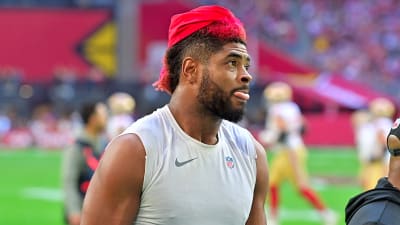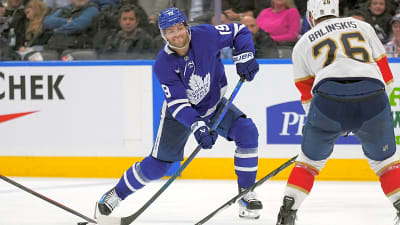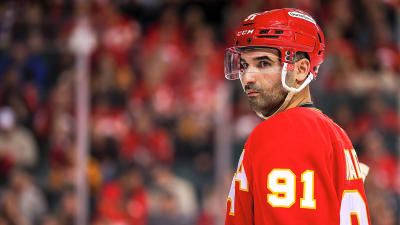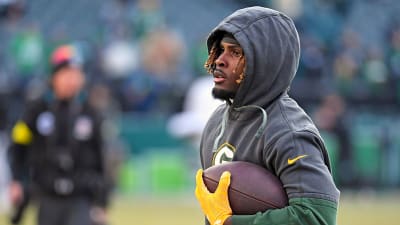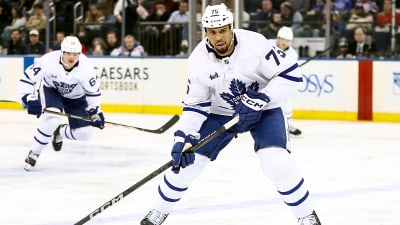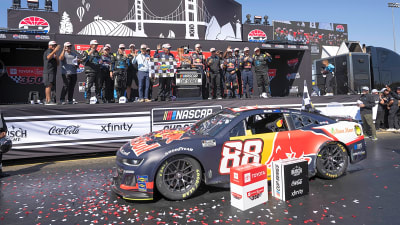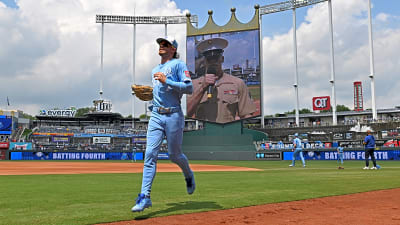
Dear NFL, thanks for getting grip on holding calls. Now hire full-time refs!
Yardbarker NFL writers Michael Tunison and Chris Mueller address some of the hottest issues in the league. This week's topic: holding penalties.
Mueller: You would likely laugh or — depending on whether or not you feel the Patriots receive preferential treatment from the NFL — seethe with anger at the suggestion that a few tweets from Tom Brady may have altered the early course of the 2019 season. Or, if the endless barrage of penalty flags was affecting your enjoyment of the games, you might be thrilled that the league’s greatest star flexed his Twitter muscles and perhaps nudged the league’s senior vice president of officiating, the perpetually beleaguered Al Riveron, into action. During the Week 3 Jaguars-Titans affair on Thursday night, a tedious slog for all but the most ardent Gardner Minshew II fans, Brady dashed off the following tweets:
Too many penalties. Just let us play!!!! #TENvsJAC
— Tom Brady (@TomBrady) September 20, 2019
I’m turning off this game I can’t watch these ridiculous penalties anymore #TENvsJAC
— Tom Brady (@TomBrady) September 20, 2019
The game featured 13 combined penalties for 131 yards, 10 of which were holding calls. Eight of said penalties came in the first half, which judging by the timestamps on Brady’s tweet, is around the time he turned the game off.
Between the end of that game and Sunday’s slate, Riveron held a conference call with referees to discuss offensive holding, after the penalty had become a point of emphasis over the summer. The specific details of Riveron’s instructions are overly technical and involve an interpretation of something called “lobster blocks,” but the gist was clear: Call fewer offensive holding penalties.
Wouldn’t you know it, that’s exactly what happened. In the season’s first two weeks, plus the Jaguars-Titans game, 188 offensive holding flags were thrown, or 5.7 per game. After Riveron’s conference call, the Sunday slate included 41 holding flags, or 2.9 per game.
It was pointed out that Riveron holds these conference calls regularly, so the timing relative to Brady’s tweets could have been entirely coincidental. That said, while the idea of Brady indirectly influencing league policy seems amusing on its face, the NFL so frequently finds itself scrambling to react to officiating firestorms that it wasn’t completely out of the realm of possibility.
Perhaps the anecdotal lens through which I’m choosing to view this issue is not allowing me to see clearly, but it feels like this sort of issue crops up every year. A sport that obsesses over the minutiae of its rulebook, constantly tweaking it, and has a very formal-sounding “Competition Committee,” seems incapable of properly enforcing its rules until at least a quarter of the season is gone. It would be funnier if it wasn’t so frustrating.
Tunison: I'm forced to wonder sometimes whether the NFL wants to render its product unwatchable. Coming into the 2019 season, the league already was facing the officiating nightmare that is ultra-fine scrutiny on pass interference calls, and evidently it decided to make matters that much more spicy by deciding "y'know what, let's just call holding more often."
One of the more accepted adages about the sometimes arbitrary nature of NFL officiating is that refs could conceivably call holding on every play. They don't, of course, because in part it ruins the quality of the product. Fans already think the game is inundated with flags and procedural nitpicking as it is. One could argue that stricter enforcement of holding gives a needed boost to defenses, though it does so at the expense of generally making the game more halting and often nullifying what would be exciting plays.
Of course, the other sometimes very arbitrary aspect of officiating is spotting the ball, a phenomenon that made for a much ridiculed moment in the Steelers-49ers game when a side judge exposed just how capricious those judgments can be.
$15 billion dollar business pic.twitter.com/e1KMpcQY8K
— (@j_a155) September 22, 2019
As for holding, it seems like the NFL does this every year -- it adds an arcane officiating emphasis in the off-season that results in frustrating results. Week 1 of the 2018 season saw a near 20 percent surge in penalties over the same period the year before. This strikes me as a symptom of both the NFL's refusal to hire full-time officials and its knee-jerk efforts to fix everything over off-seasons that are longer than other major sports and therefore provide more time to obsess over little details that end up having a detrimental effect anyway.
At least knowing this is an annual issue allows me not to bestow any more accolades for Tom Brady.
Mueller: The full-time refs thing is so frustrating. The league makes money hand over fist, and yet it is the only one of the major four professional sports leagues without full-time officials. I suppose detractors would point to the fact that the season is considerably shorter as a reason against full-time employment. But with officiating problems so persistent, it makes me think that maybe it would be better to make those charged with making hugely important calls — both in terms of wins and losses, and ahem, financial outcomes — full-time employees.
Enough with the businessmen and lawyers moonlighting as refs. The detail-oriented thing makes me think about one of the more preposterous realities of the NFL: that being that the league under Roger Goodell has tried to position itself as this serious arbiter of morals, and American values, and as a bastion of sane thinking. At least that’s the way it seems Goodell wants things to come off. I get that it’s a multi-billion-dollar business, but at day’s end, it’s grown men playing a sport.
Everything about the league is so capital "S" serious all the time, and it gets in the way of common sense. Defining a catch shouldn’t be hard. Offensive holding? Follow the wise words of former United States Supreme Court Justice Potter Stewart, who, in an obscenity case, said of hardcore pornography, “I know it when I see it,” and leave it at that.
You mention the humorous, haphazard way in which the ball is spotted, and I think too of the chain gang, still used, as ever, to keep track of the line to gain for a first down. The technology exists to make that vestige of a bygone era obsolete, but it perseveres.
Speaking of technology, part of me wonders if the league tortures itself about its rules because the powers that be understand that plays can be slowed down to an extreme degree, and therefore try to carefully craft perfect rules that stand up to that level of scrutiny. If my hypothesis is right, here’s some free advice for whomever at the NFL offices might be reading this: Ease up on the level of detail. Fans would rather move on from a play in short order rather than watch another interminable review.

Tunison: Detractors who are hardcore fans of other major sports often malign football by pointing out that there's only about 12 minutes of actual action during a game. Faster pacing by offenses could spike that a little bit, but ultimately that's more or less how it's going to be with football. You would think, then, the league itself wouldn't exacerbate the situation by subjecting games to constant officiating delays. It only highlights existing weaknesses within the sport, not to mention usually kills momentum when an exciting play does happen.
At least with ball spotting they've experimented with computer chips planted inside the ball to provide information about positioning. I would imagine the technology is sufficient that the league could use that to eliminate the chain gang, if not now then within a few years. Still, I wonder if the NFL is worried about deferring to computers on that front because the chain gang presents the comfort of a seemingly accountable human element that, albeit flawed, at least people can see. With the chips, the league would announce "the computer says the player was down here," and I suspect some of the more conspiracy-minded would believe that would be easier for the league to manipulate outside the view of the masses.
The bizarre corporate moralism might be encouraged by Goodell, though I'm confident it would still exist to some extent without him. That's generally how culture works now. The public wants to believe the people who produce its entertainment are morally pure, even if the institutions in which they work are deeply compromised.
We're going in scattered directions because holding is such a hard thing to pin down with precision that it being more strongly enforced only reminds us of the many other ways how football is run make no sense. To a degree, that's fine. Sports are intended to be a frivolous distraction, but because there are entire industries set up around it -- media, fantasy football, gambling, merchandising, etc -- it does take on serious consequences for people not even directly involved in the game.
The ship has sailed on undoing any of that. The best we can hope for is a good viewing experience, and clearly that's being messed with.
More must-reads:
- Browns rookie running back Quinshon Judkins arrested
- Patriots owner Robert Kraft offers rare praise for former HC Bill Belichick
- The 'Total touchdown leaders by NFL season since 2000' quiz
Breaking News
Trending News
Customize Your Newsletter
 +
+
Get the latest news and rumors, customized to your favorite sports and teams. Emailed daily. Always free!
